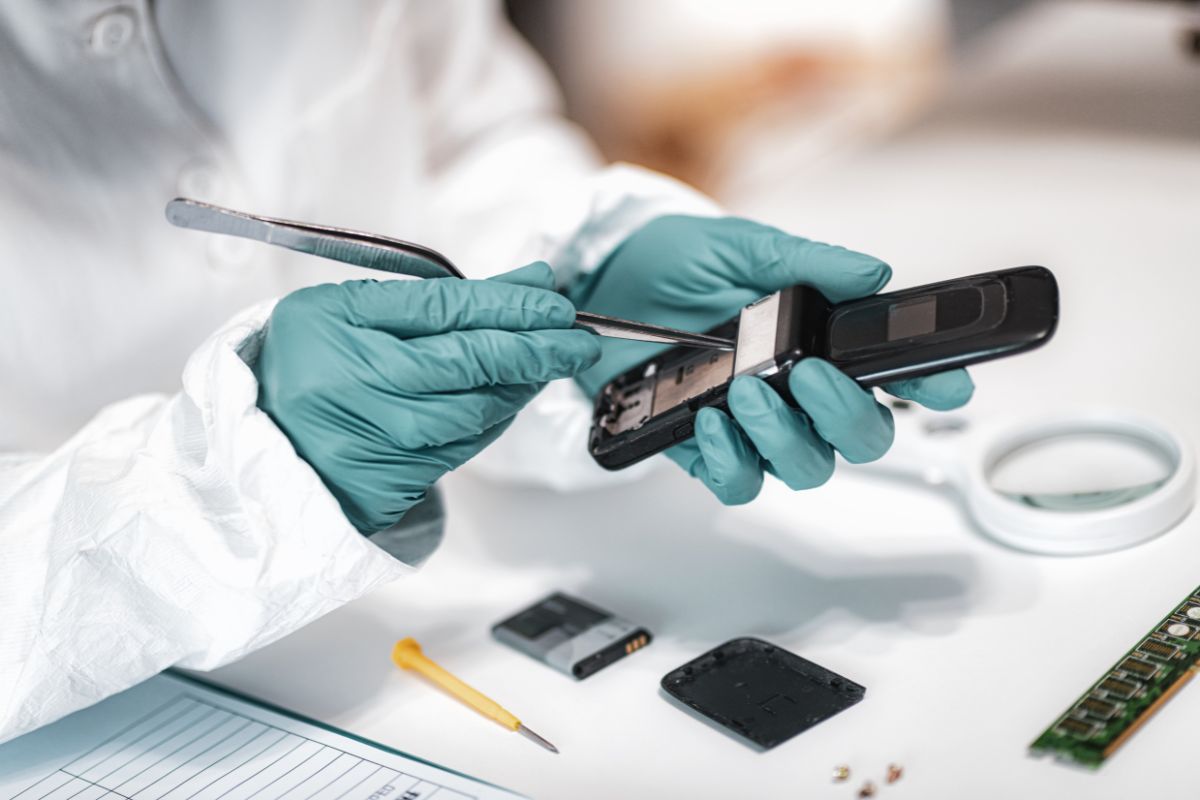In today’s rapidly evolving digital landscape, mobile devices have become an integral part of our lives. From communication and social networking to online shopping and banking, we rely on these devices for almost every aspect of our daily activities. Consequently, mobile devices have also become prime targets for cybercriminals, making them a critical component of digital forensics investigations. In this blog post, we will delve into the reasons why mobile devices are crucial to digital forensics and explore how they play a significant role in areas like Fort Lauderdale.
The Ubiquity of Mobile Devices
The widespread use of smartphones and tablets has transformed the way we interact with the digital world. According to Statista, there were approximately 3.8 billion smartphone users globally in 2021, and this number is expected to grow further in the coming years.
This widespread adoption of mobile devices means that they often contain a wealth of personal and sensitive information, such as contacts, messages, photos, videos, location data, and financial details. This data can be invaluable to digital forensics investigators, providing crucial evidence that can help solve cases involving cybercrimes, data breaches, and other digital offenses.
The Role of Mobile Devices in Cybercrime
- Cybercriminals are increasingly targeting mobile devices due to their widespread use and the valuable data they hold. Some common mobile device-related cyber crimes include:
- Mobile malware: Malicious software designed to infect and compromise mobile devices, steal sensitive data, or facilitate unauthorized access.
- Phishing attacks: Users may receive fraudulent messages through SMS, email, or social media platforms that deceive them into disclosing their personal information or downloading malware.
- SIM swapping: An attack where cybercriminals gain control of a victim’s phone number by transferring it to a new SIM card, enabling them to intercept calls, messages, and bypass two-factor authentication.
- Mobile device theft: The theft of mobile devices can lead to unauthorized access to sensitive personal and financial information, identity theft, and corporate data breaches.
Given the increasing prevalence of mobile device-related cybercrimes, digital forensics investigators must be well-equipped to analyze these devices and uncover critical evidence that can help bring cybercriminals to justice.
Mobile Device Forensics: Challenges and Techniques
Mobile device forensics presents unique challenges compared to traditional computer forensics. Some of these challenges include:
- Diversity of devices and operating systems: With numerous manufacturers, models, operating systems, and software versions, mobile device forensics can be incredibly complex.
- Encryption and security features: Modern mobile devices come equipped with advanced encryption and security features, making it difficult for investigators to access and analyze data.
- Volatile data: Mobile devices often store data temporarily, which can be easily overwritten or lost when the device is powered off or rebooted.
- Cloud storage and synchronization: Many mobile devices automatically backup data to cloud storage services, complicating the process of obtaining and analyzing evidence.
Despite these challenges, digital forensics investigators employ various techniques and tools to analyze mobile devices effectively. These include:
- Physical acquisition: Extracting data directly from the device’s memory or storage, often requiring specialized hardware and software tools.
- Logical acquisition: Accessing data through the device’s operating system or applications, typically using commercial or custom-built forensic tools.
- Over-the-air acquisition: Obtaining data remotely from the device or associated cloud storage services, usually requiring cooperation from service providers or legal authorization.
The Importance of Mobile Device Forensics in Fort Lauderdale
Fort Lauderdale, a vibrant city in Florida known for its beautiful beaches and booming economy, has also experienced the growing impact of mobile device-related cybercrimes. As businesses and individuals in the area become more reliant on mobile devices, the need for skilled digital forensics investigators equipped to handle these cases becomes increasingly critical. With the rising tide of cybercrime in the region, computer forensics in Fort Lauderdale plays a vital role in protecting local organizations and individuals from the devastating consequences of data breaches, cyberattacks, and other digital offenses. By leveraging their expertise in mobile device forensics, investigators in Fort Lauderdale can help uncover critical evidence, track down cybercriminals, and ultimately contribute to a safer digital environment for the community.
Conclusion
Mobile devices have become an indispensable part of our lives, but their widespread use also makes them prime targets for cybercriminals. As a result, mobile device forensics has emerged as a critical component of digital forensics investigations. By understanding the unique challenges and techniques associated with mobile device forensics, investigators can effectively analyze these devices and uncover crucial evidence that can help solve cases and bring cybercriminals to justice.
In areas like Fort Lauderdale, where the impact of mobile device-related cybercrimes is increasingly felt, having skilled digital forensics professionals equipped to handle these cases is essential. By investing in mobile device forensics capabilities, organizations and law enforcement agencies can better protect their communities and contribute to a safer digital world.



